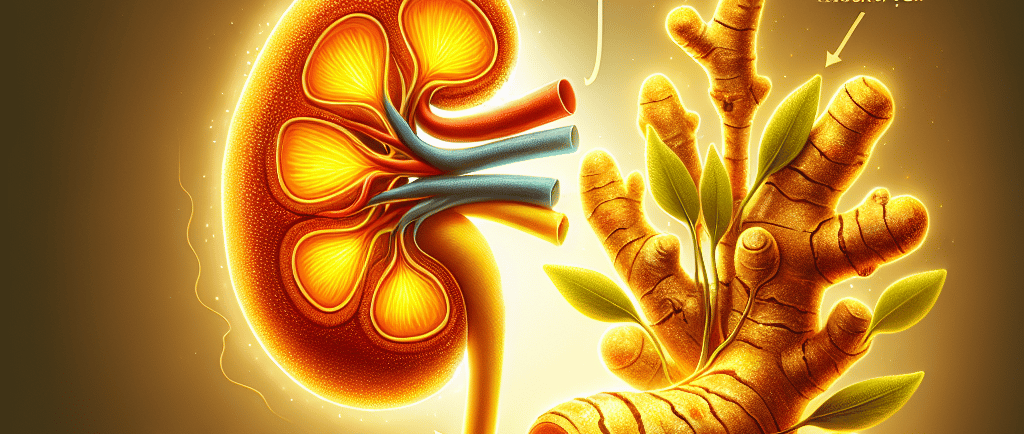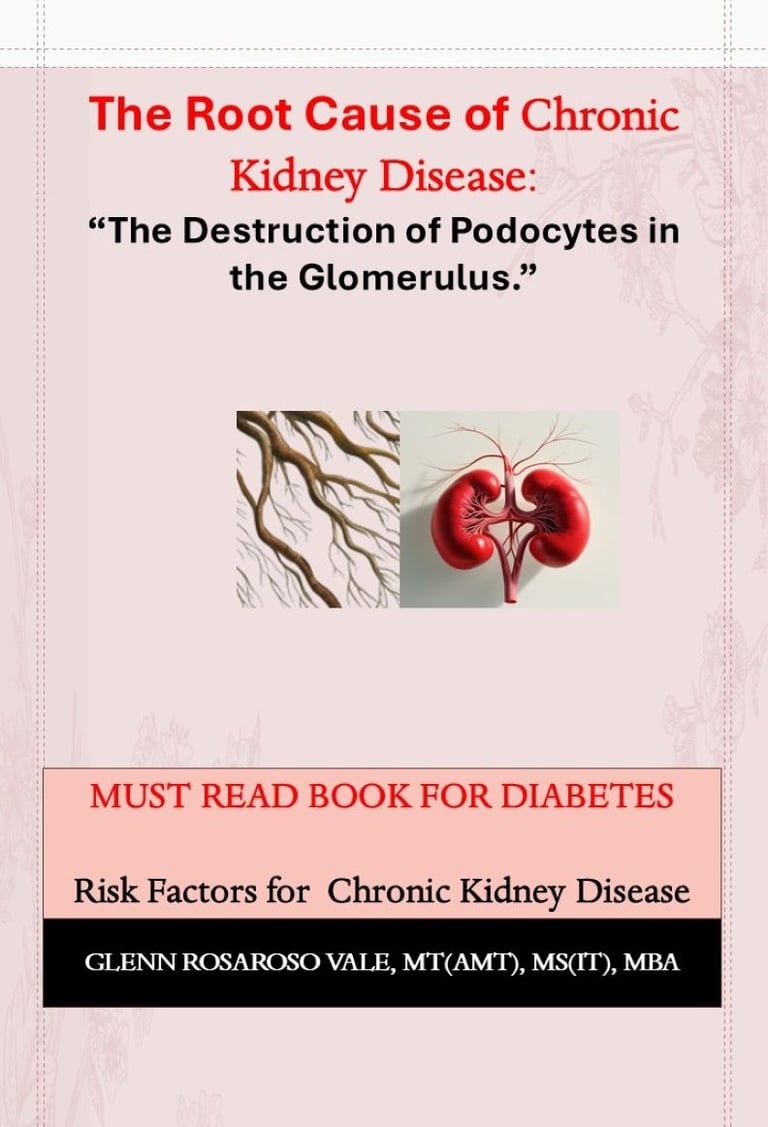"Uncover the truth behind the groundbreaking discovery of the causes of the world's biggest problems. 'The Root Causes' will change how you view the world!"
Understanding the Different Types of Kidney Disease
Introduction to Kidney Disease Kidney disease is a broad term that encompasses a range of conditions affecting the kidneys, which are vital organs in the human body. The kidneys play a critical role in filtering waste, balancing fluids, regulating blood pressure, and maintaining electrolyte levels. When these organs are damaged or diseased, it can lead to serious health complications. Understanding the different types of kidney disease is essential for early detection, effective management, and better health outcomes. Chronic Kidney Disease (CKD) Chronic Kidney Disease (CKD) is one of the most common types of kidney disease. It is characterized by a gradual loss of kidney function over time, often due to conditions such as diabetes, hypertension, or glomerulonephritis. CKD is generally categorized into five stages, ranging from mild kidney damage to complete kidney failure, necessitating dialysis or transplantation. Early diagnosis and management of CKD can slow the progression of the disease and improve quality of life.
DISEASES
Glenn Rosaroso Vale, BSMT, MS(IT), MBA
12/2/20245 min read


Understanding Kidney Disease: Types, Causes, and Prevention
Kidney disease is a broad term that encompasses a range of conditions affecting the kidneys, which are essential organs responsible for filtering waste from the blood, balancing fluids, regulating blood pressure, and maintaining electrolyte levels. When kidney function is impaired, it can lead to serious health complications, and in some cases, kidney failure. Understanding the various types of kidney disease, their causes, symptoms, and treatment options is crucial for early detection and effective management.
Types of Kidney Disease
Chronic Kidney Disease (CKD)
Chronic Kidney Disease (CKD) is one of the most common types of kidney disease. It is characterized by the gradual loss of kidney function over time, often due to conditions such as diabetes, hypertension, or glomerulonephritis. CKD is classified into five stages, ranging from mild kidney damage to complete kidney failure, which requires dialysis or a kidney transplant.Early detection and management can slow the progression of CKD and improve quality of life. Treatment typically focuses on managing underlying conditions like diabetes or high blood pressure and adopting lifestyle changes such as a kidney-friendly diet, exercise, and regular monitoring.
Acute Kidney Injury (AKI)
Acute Kidney Injury (AKI), or acute renal failure, is a rapid decline in kidney function, often occurring over hours or days. This condition can be caused by dehydration, infections, exposure to harmful medications (nephrotoxic substances), or significant blood loss. Unlike CKD, AKI can often be reversible if the underlying causes are identified and treated promptly.Symptoms of AKI include decreased urine output, swelling, fatigue, and confusion. Early intervention is critical, as untreated AKI can lead to permanent kidney damage or failure.
Polycystic Kidney Disease (PKD)
Polycystic Kidney Disease (PKD) is a genetic disorder in which fluid-filled cysts grow in the kidneys, potentially impairing their function and causing chronic kidney disease over time. PKD can be inherited in two forms: autosomal dominant PKD (ADPKD), the most common form, and autosomal recessive PKD (ARPKD), which is rarer and more severe.While there is no cure for PKD, treatment focuses on controlling symptoms and preventing complications. Managing blood pressure, addressing pain, and monitoring kidney function regularly are crucial for those with PKD.
Glomerulonephritis
Glomerulonephritis refers to inflammation of the glomeruli, the tiny filtering units within the kidneys. This inflammation can be caused by infections, autoimmune diseases (such as lupus), or exposure to certain medications. Symptoms often include blood in the urine, swelling, and high blood pressure.Treatment depends on the underlying cause of the inflammation and may involve medications such as immunosuppressants, diuretics, or lifestyle changes to reduce swelling and control blood pressure.
IgA Nephropathy
IgA Nephropathy, also known as Berger's disease, is a type of glomerulonephritis caused by the deposition of an antibody called immunoglobulin A (IgA) in the kidneys. This condition can lead to progressive kidney damage and is often linked to genetic and environmental factors.While there is no specific cure, treatment for IgA nephropathy focuses on managing symptoms, such as blood and protein in the urine, and preventing progression. Medications like ACE inhibitors, angiotensin receptor blockers (ARBs), and corticosteroids are often used to reduce inflammation and control blood pressure.
Diabetic Nephropathy
Diabetic nephropathy is a complication of diabetes that results in kidney damage. High blood sugar levels over time damage the blood vessels in the kidneys, impairing their ability to filter waste effectively. Diabetic nephropathy is a leading cause of chronic kidney disease and can progress to kidney failure if not managed properly.Maintaining blood sugar levels, controlling blood pressure, and monitoring kidney function regularly are essential in preventing or slowing the progression of diabetic nephropathy.
Hypertensive Nephropathy
Hypertensive nephropathy refers to kidney damage caused by high blood pressure. Over time, uncontrolled hypertension can damage the small blood vessels in the kidneys, reducing their ability to function.Treatment focuses on controlling blood pressure through medications, a low-sodium diet, exercise, and other lifestyle changes to prevent further kidney damage.
Nephrotic Syndrome
Nephrotic syndrome is a group of symptoms indicating kidney damage, including high levels of protein in the urine (proteinuria), low levels of protein in the blood, swelling (edema), and high cholesterol. It can result from various kidney diseases, including glomerulonephritis, diabetic nephropathy, and focal segmental glomerulosclerosis.Treatment typically involves medications like corticosteroids, diuretics to reduce swelling, and other drugs to manage cholesterol and blood pressure.
Focal Segmental Glomerulosclerosis (FSGS)
Focal Segmental Glomerulosclerosis (FSGS) is a condition where scar tissue forms in the kidneys' glomeruli, leading to kidney dysfunction. It can be caused by genetic factors, infections, drug use, or other conditions like obesity or hypertension.Treatment involves managing symptoms and controlling the underlying cause. Medications such as corticosteroids and immunosuppressants are often used, along with blood pressure control.
Kidney Stones
Kidney stones are hard deposits of minerals and salts that form in the kidneys. While they aren’t classified as a type of kidney disease, they can lead to kidney damage if left untreated. Kidney stones may block urine flow, cause infections, or lead to chronic pain and kidney damage.Treatment options depend on the size and location of the stones. They include increased fluid intake, pain management, and procedures like shockwave therapy or surgery to remove the stones.
Renal Artery Stenosis
Renal artery stenosis refers to the narrowing of the arteries that supply blood to the kidneys, often caused by atherosclerosis (hardening of the arteries). This reduces blood flow to the kidneys and can lead to kidney damage and secondary hypertension.Treatment includes controlling blood pressure, medications, and sometimes surgical procedures such as angioplasty to open the narrowed arteries.
Alport Syndrome
Alport syndrome is a genetic disorder affecting the kidneys, ears, and eyes. It results from mutations in the genes responsible for producing type IV collagen, a protein found in the kidney's glomeruli. This leads to progressive kidney damage, hearing loss, and eye problems.Early diagnosis and management are essential. Treatment may include medications to manage symptoms and slow the progression to kidney failure.
Acute Interstitial Nephritis (AIN)
Acute Interstitial Nephritis is an inflammatory condition of the kidneys caused by allergic reactions to medications, infections, or autoimmune diseases. It can lead to kidney dysfunction if left untreated.Treatment generally involves stopping the offending medication and using corticosteroids to reduce inflammation. Managing the underlying cause is key to recovery.
Hepatorenal Syndrome
Hepatorenal syndrome is a type of kidney failure that occurs in individuals with severe liver disease, particularly cirrhosis. This condition results from changes in blood flow due to liver failure and can lead to kidney dysfunction.Treatment usually involves addressing the underlying liver disease and may require a liver transplant, along with medications to manage kidney function.
Conclusion
Kidney disease encompasses a wide range of disorders, each with its own unique causes, symptoms, and treatment strategies. Whether it's chronic kidney disease, acute kidney injury, or genetic disorders like polycystic kidney disease, early detection and proper management are crucial for preserving kidney function and preventing long-term complications. Awareness of the different types of kidney disease and their risk factors can lead to better outcomes through proactive healthcare, including regular screenings, lifestyle modifications, and timely interventions.
By understanding kidney disease, individuals can take steps to protect their kidney health and improve their overall well-being, leading to a healthier life and a better quality of life.
Health
Understanding illness to empower your well-being journey.
Wellness
Knowledge
info@rootcauseprevention.com
903-268-6664
© 2024. All rights reserved.
grfv@sbcgloal.net



